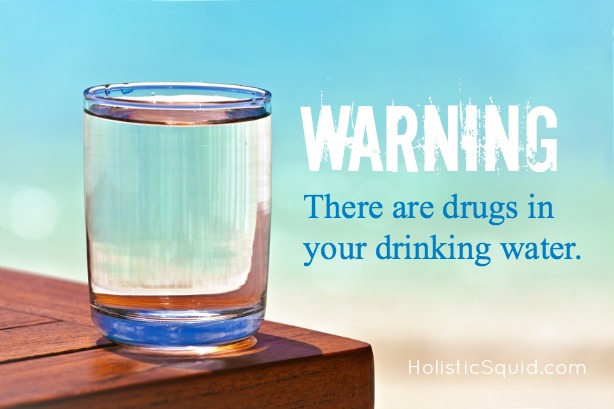
You may have noticed, I'm a bit of a freak about real food and holistic health. We get pastured meat direct from our farmer; I avoid additives and mystery ingredients like the plague; I even make my own body products when I can ‘t find ones that are ‘clean' enough. It's my thing. So you can imagine, I wasn't thrilled to learn that there may be prescription drugs in drinking water that my family and I consume every single day.
In one of the largest studies of its kind to date, the Environmental Protection Agency tested municipal water for over 50 kinds of pharmaceutical substances including prescription and over-the-counter drugs. The results showed that that over half the public water had higher concentrations of drugs than experts had previously anticipated with high blood pressure medication at the top of the readings. And surprise, surprise, there are no federal regulations limiting the amounts of these substances that companies can release in our water. (source)
If you’re anything like me, you probably don't have a medicine cabinet full of prescription drugs. But the average American trusts that when they take their medication as prescribed, they're unlikely to cause harm to themselves or others.
Wherever you may fall on the conventional to alternative spectrum, no one wants to have traces of pharmaceutic hormones, anti-depressants, or other drugs swirling around in their water glass.
How do drugs end up in our water?
It's simple when you think about it. The main route by which drugs end up in the water supply is through the toilet.
Prescription drugs are excreted through urine because the human body doesn't completely absorb the chemicals. Plus, many health care facilities have been flushing expired drugs for decades without considering the long-term environmental effects it may have on water supplies. Add to this that fact that left-over and expired drugs get tossed by consumers in the toilet or trash, and it's easy to see how drugs are making their way into the groundwater and water supply.
What's even more disturbing, in my opinion? Factory farming is largely to blame, with “two trillion pounds of animal waste generated by large-scale poultry and livestock operations in this country, laced with hormones and antibiotics fed to animals to make them grow faster and to keep them from getting sick. Inevitably, some of those hormones and antibiotics leach into groundwater and get into waterways.” (source) One more reason to get to know your farmer.
Are the drugs in drinking water enough to harm us?
The federal government won't bother to investigate unless there is reason to believe that the concentration of any substance can reach a substantial level. Since there no ‘evidence' to prove the negative effects, health officials therefore conclude that ingesting low levels of chemicals in drinking water poses no serious health risks for humans.
I don't know about you, but I don't find this particularly reassuring.
Freaky things are happening to fish and frogs where concentrated amounts of pharmaceutical compounds are being found in their water. In areas where estrogen is polluting their habitat, scientists have found larger populations of only female fish, the appearance of intersex fish that are both male and female, and male fish actually developing eggs (source). Low levels of common anti-depressants are causing development problems in fish and metamorphosis delays in frogs (source).
When a pharmaceutical company applies for new drug approval, it has to submit an estimate of how much that drug will end up in the environment. They use a model based on how many people they estimate will take the drug, how it will pass through the body, and how it degrades in water. If the estimate is over 1 part per billion (ppb) the FDA can ask for a more thorough evaluation of how that drug will affect aquatic life.
On July 7, 2010, two environmental groups—the National Resources Defense Council and the Great Lakes Environmental Law Center—filed a citizen’s petition asking the FDA to ask for a more thorough evaluation for all new drug applications, no matter what the estimate.
The FDA denied the petition… though eight of the drugs in the EPA study came in at maximum levels above that 1 ppb “brightline,” FDA officials said it would be a challenge to go back and ask the pharmaceutical companies to re-evaluate. (source)
Hey, FDA, thanks so much for having our backs.
If the planet's aquatic life is being negatively impacted, is it really safe to assume that there will be no long term effects of drugs in drinking water on human health? Personally, I'd rather be safe than sorry.
How to get rid of drugs in drinking water
To reduce your contribution to this problem, don't just toss leftover prescription medications. Be sure to make use of drug take-back programs to dispose of them properly, because even if you throw them in the trash, they will eventually end up in the groundwater.
After water has been treated at a waste plant, some drug concentration levels are significantly reduced, but others are not. These facilities are not currently designed to remove pharmaceuticals from water, and even if they wanted to, removing drugs from the water supply is prohibitively expensive to implement on a large scale.
Since it's not likely that the government or water treatment facilities are going to go to the trouble of protecting our environment or us humans from drugs in drinking water, here's the question you and I need an answer to:
How can I make sure my water is safe for myself and my family?
While water delivery is an option, it is costly and not as pure as you might hope. The water industry is not required to filter out pharmaceuticals from their products, so a reverse osmosis filter or buying distilled water are your best bets. But keep in mind that these methods of filtration will leave your water lacking in essential minerals, so I'd recommend supplementing with trace mineral drops like this one.
Filtering the water yourself is probably the most practical solution, with decent options for every budget and living situation, if you know what to look for.
The best home water filters
The fact is that no home water purification system can take away 100% of contaminants. Boo. That said, there are a few filtration options that I think are better than others when it comes to protecting your family from fluoride and other contaminants like drugs in drinking water:
Reverse osmosis with minerals: This is the reverse osmosis filter that my family uses. It stashes under the sink and adds beneficial minerals back into the filtered water.
Countertop gravity filtration: If you live in a rental or just want a more cost effective solution, this amazing countertop filter is a great option. Bonus: In case of the zombie apocalypse or other disasters you can filter just about any water in this filter without power or a municipal running water source.
Water distiller: Alternative medicine guru Andrew Weil believes that distilling water is the safest and most affordable solution for clean water. While he has a good point, he overlooks the essential minerals that get lost in the distillation process. (source)
To make up for this, you can supplement with trace mineral drops like this one. I like this distiller that has only glass and stainless steel in contact with the water, because if you're going to all this trouble, you don't need plastic leaching into your water too.
You can read more about my research into water filters here and find even more recommendations in my shopping guide.
Before I leave you to contemplate the state of your drinking water, I'd like to take a second to acknowledge that this post is definitely about a first-world problem. There are people on our very small planet that would kill for our clean water laced with trace levels of drugs. I don't take this lightly. I also don't take lightly that my Los Angeles water is shuttled in from far, far away and I should probably take shorter showers because of it.
Consciousness comes at many levels. I am grateful for the relatively clean water running out of my taps. And I don't want drugs in it. The end.
Are you worried about chemical and drugs in your drinking water? What are you doing to make sure your water is safe?



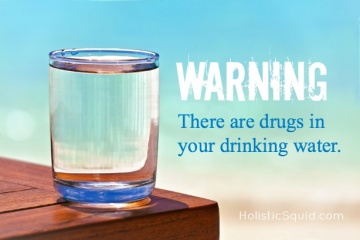
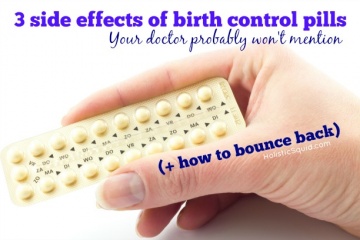
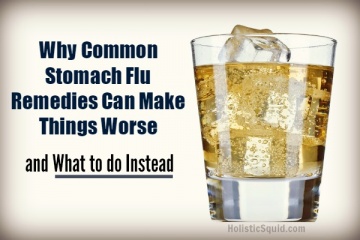
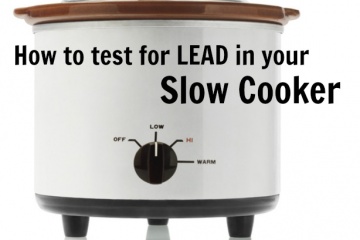
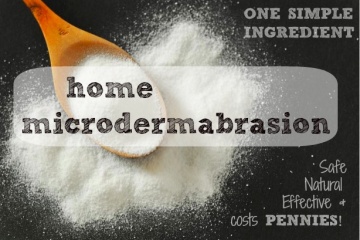

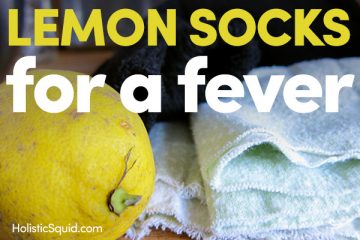
Hi Emily,
Great post but your under the counter system doesn’t seem to remove flouride. This has been recommended to me and it does remove flouride as well as chlorine and other harmful substances. http://www.purewaterproducts.com/undersink-fluoride-filter
This is something that’s been weighing heavily on my mind lately. We have a well and assumed our water quality was good. We filtered the water through our fridge dispenser for a long time. We recently found out the EPA did a study in our area and found elevated levels of prescription drugs, oil and gas from local gas stations, and other harmful substances. We’ve been buying distilled water (sold in glass, Thank God!) but we plan to get a Berkey as soon as possible. I wish this wasn’t something we had to worry about.
Thanks for the article…our family uses a Berkey Water System filters…we are very happy with the quality water given and keeping the minerals intac. I also have a RO, but it strips the minerals out of the water and we so much need them since our soil is depleted and polluted! I am learning so much here. We offer Berkey’s to CA residence, only a few can be sold in our state. The cool thing is that it is portable and you can put tab water in it and it has carbon filters that slowly ( I mean very slowly) drip out the pure water in the stainless steal tank below.
I like the idea I can bring the Berkey with me where I go..great for camping and those survival e! LOL
Shalom
Here is our site if you are interested in just taking a peak http://www.healingthroughout.com/berkey-water/
Emily do you add your trace minerals to your glass/water bottles each time you fill them up?
We have an RO system with a remineraliser and this is our drinking water…
Hi Jo – Thanks for your comment. No, not with the remineralizer.
Very informative, well-rounded article. Pardon my ignorance regarding the cheapest options like Brita water filters, but do they not do a good enough job? I’d love to hear your thoughts on this, we currently just use a Brita faucet attachment filter. Thanks!
Brita only filters out some of the chlorine to make it taste better, nothing else.
Thanks Joanne–time to make a change then.
Hi Allison – Thanks for your comment. You can read more about effective water filters here: http://holisticsquid.com/drinking-water/
“The Federal government will not bother to investigate…” That’s really not true at all. There are lots of scientists working on this – hence the original study that you cited. In fact, here’s a current RFA that I am applying for to study this question. The EPA will be spending $4 million on this RFA alone. I would say that’s refusing to investigate.
Forgot the link. http://www.epa.gov/ncer/rfa/2014/2014_star_water-reuse.html
I moved to the mountains to get cleaner water and air. Seems better but who really knows
I recently attended a WHMIS training session at which we were told that our children’s early puberty is caused by the hormones in the water. Hormones which cannot be filtered properly from the urine of women on “the pill”. have you heard this? Is there anything you can inform us about on it?
Is it even true? i haven’t been able to find anything to back it up.
thanks D
Hi DScott – Thank you for your question. I wrote about the correlation between water and puberty in this post. Hope this helps!
Mineral drops are a scam, and dangerous. They have very high levels of arsenic and several other ‘trace’ minerals we do not need in any quantity. The notion that we have to have some arbitrary amount of minerals in our water is just silly. Just drink clean water and eat your minerals.
Would the “Ovopuro” water filter filter all the yuck out? I think it has charcoal as one part of its filters.
I actually am not familiar with that brand at all. If it has most of the features you would expect, it would probably do the job but without doing thorough testing, I really couldn’t say.
Is commercially delivered spring water better? That is what we are currently doing. I chose spring over just filtered hoping it’s better.
Hey Krista, that really depends on the company and how it is filtered. Find out from them but if you are in any doubt, you can have the water tested to be sure.